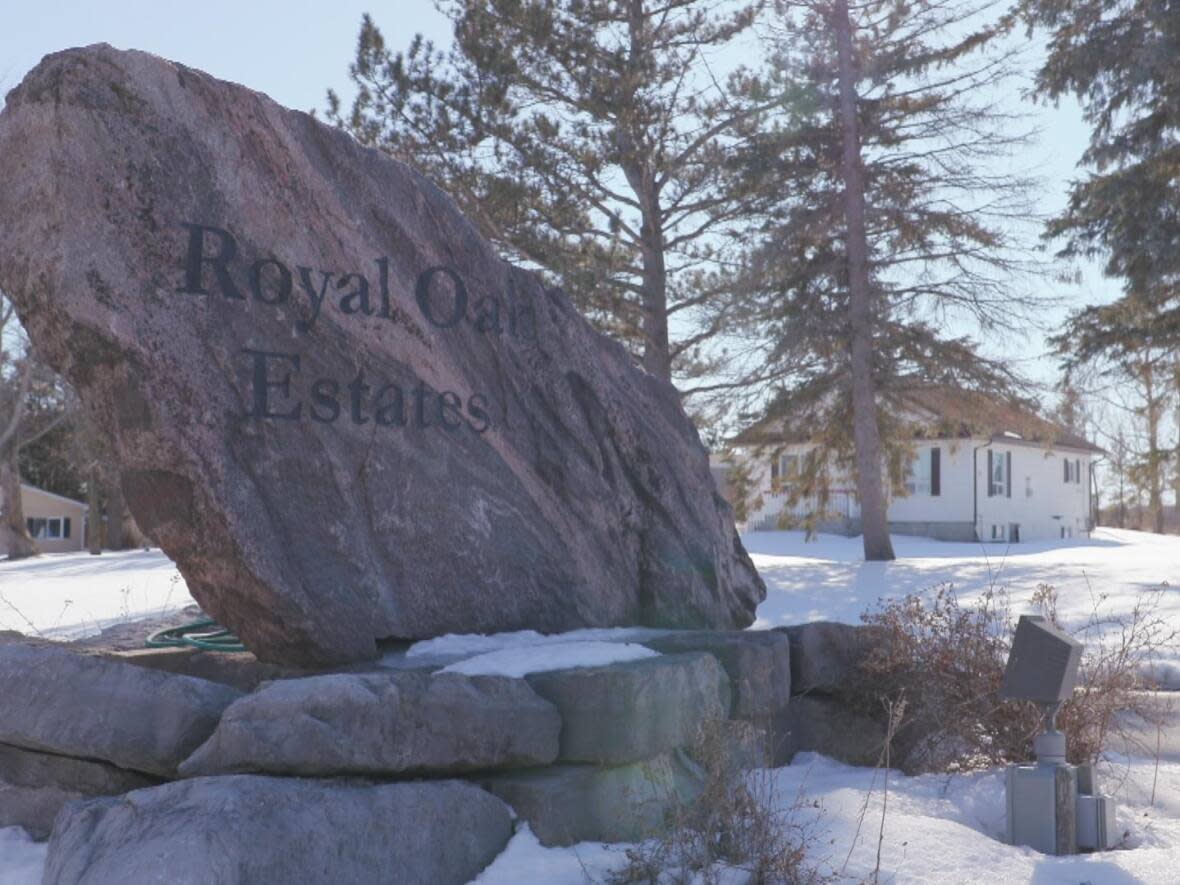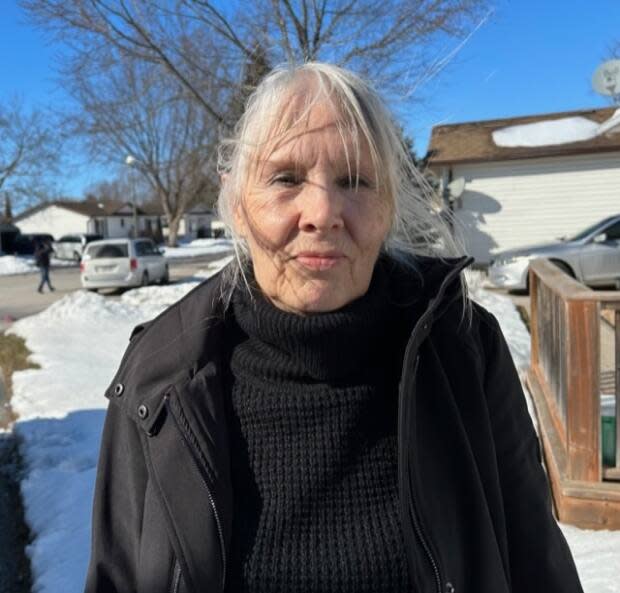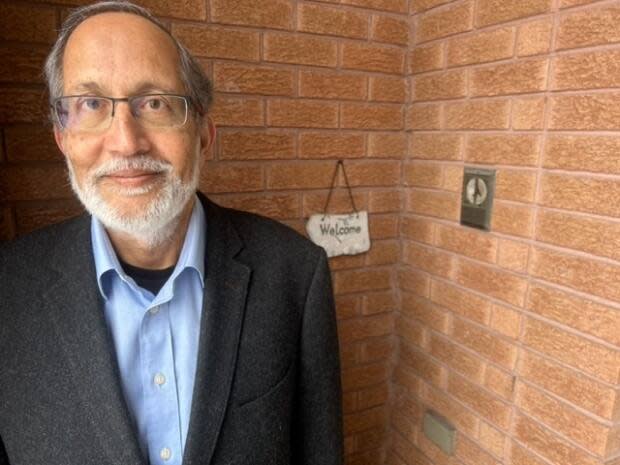Residents of quiet community north of Toronto speak out over what they say are substandard conditions

Residents of a quiet enclave north of the Toronto say they're worried about their futures because their landlord is not properly maintaining the land on which their houses sit.
About 80 families live in Royal Oak Estates, in Cookstown, near Barrie, Ont. There, residents — mostly seniors — own their homes, but not the land where the homes are located.
The arrangement is called land lease home ownership. Homeowners pay a monthly lease to the landowner, plus property taxes. They're also expected to maintain the property immediately surrounding the house, such as mowing their lawns.
The landowner is responsible for managing sewage systems if they are off an individual's lot, plus water and power lines, roads, snow removal, and other maintenance issues that would normally be the work of the municipality.
There are a handful of land lease communities just outside the Greater Toronto Area. But at Royal Oak Estates, some say problems have been ongoing for about the last seven years.
"All we're asking is for the landlord to do the required maintenance. Part of the reason we pay fees is to have these problems looked after, and properly," said 22-year-resident Barb Coleman.

Residents who spoke to CBC News said flooding is routine, trees and street lights aren't properly maintained and the roads are so cracked and filled with potholes that their cars are being damaged.
"Most of the year there's flooding...terrible potholes, and in order to drive, you have to dodge those," said Coleman. "Some people are [also] having trouble with the snow plowing."
Landlord denies allegations
The residents who spoke to CBC News blame the landlord and property manager, Sabi Ahsan, for not consistently living up to the landlord's responsibilities.
Ahsan denies he's a lax landlord. He says that he's been holding up his end of the leases. And besides, he says lots on the property are in high demand.
He also denies that roads in the community have ever flooded.
"Most of the tenants have lived there 20, 25, 30 years," he told CBC News. "There's a reason why they've been there that long. And whenever a home goes up for sale in that community, it is sold within days... because there's a great reputation. It's a great place to live."
Land lease home ownership is much cheaper than traditional home ownership, residents say, with rates that range from about $500 to $1,000 a month, including property taxes. Some also pay mortgages on the houses, but those tend to be low because they're only financing the cost of the house, not the land.

Paralegal Kathleen Lovett, who specializes in landlord-tenant issues, says there's good reasons why the land lease option is popular, especially among seniors.
"Living in a mobile park community is an affordable way to live, where you don't have full responsibility of all the maintenance of the exterior. Your lot size is pretty manageable," she said.
"Plus they have neighbours…Everybody looks after everybody in these communities so there's definitely a feeling of security and community."
Residents can fear speaking out, says lawyer
One downside though, according to Lovett, is that it can be very expensive should a tenant decide to move.
That's because it's not just the tenant who leaves, but the house too.
Houses in the community are supposed to be moveable, but that can be a challenge. Residents have to pay to move their house off the lot, which can be prohibitively expensive.
It's also one reason residents can sometimes be afraid to complain about maintenance issues, fearing the costs associated with possible eviction, she says.

"You have to remove that (house) in a very short amount of time and that can cause an enormous amount of stress," said Lovett. "A lot of them just don't want to rock the boat...So they'll just sit back and take what's coming at them."
Landlords often know this, she says.
"I feel in a lot of cases...it's empowering the landlord to a certain extent to not be straightforward in resolving these issues promptly."
Councillor calls for province to do more
Glenda Hagerman, 89, and her husband Brian have lived in the Royal Oak Estates community since 2007. They live on fixed incomes and they agree that despite their complaints, it would be, in Glenda's words, "impossible" to move.
As for the municipality, elected officials say there's little they can do to force action on the landowner, because unlike a traditional subdivision, the estate is technically on private property.
Until last fall, Rob Nicol was the councillor who represented the residents of Royal Oak Estates. Asked how he would characterize the relationship between the landowner and some of the residents, he said "strained would be the mild way to put it."
"When you move into a nice quiet community like this you're hoping to enjoy those years of your life, as opposed to having to [fight] for something as simple as a street light, or drainage," he said. "It's really sad that our community has to fight through this."


